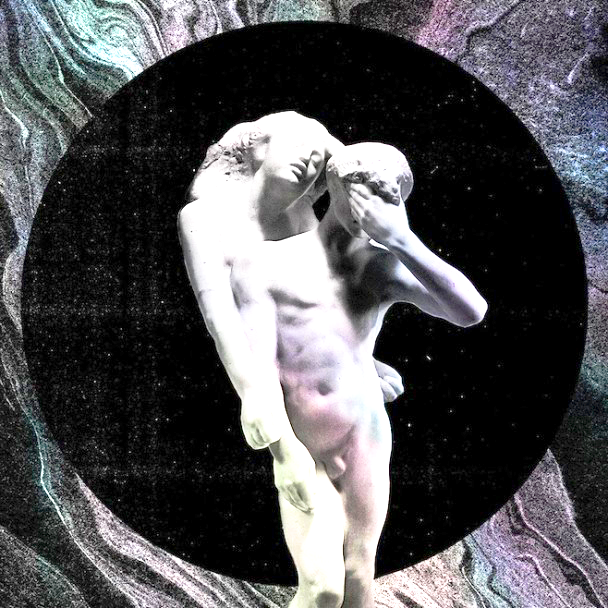“Reflektor,” the fourth album in Montreal-based Arcade Fire’s critically acclaimed discography, reflects the next chapter in their careers. They sold the Canadian church in which they recorded 2007’s “Neon Bible” and 2010’s “The Suburbs” and moved to an abandoned castle in Jamaica and then the apartment studios of James Murphy in New York City. The album is influenced by Haitian rara music (which you can hear specifically in tracks such as “Here Comes the Night Time” and “You Already Know”), and the 1959 film Brazilian “Black Orpheus,”(which the stream of the album debuted over on YouTube). “Reflektor’s” release was also promoted by a new-age album rollout campaign involving various mysterious veve drawings appearing in major cities across the globe.
The album spans thirteen songs over two discs with an end time of eighty-five minutes and sixteen seconds. It never becomes boring, as a myriad of instruments or electronic production is constantly swaying the listeners. Most songs go over the five-minute mark and the album deserves attention in the full, not through one standout song or cut by which to remember the album.
On lead single “Reflektor,” the band creates a seven-minute smooth intro that makes one want to dance and discover the darkness inside oneself. The song was released as the first single to large success and will surely become an anthem for the next year. Singer Régine Chassagne moans French lyrics such as “Entre la nuit, la nuit et l’aurore / Entre les royaumes, des vivants et des morts.” When translated from French it means “Between the night, night and dawn/?Between the kingdoms, of the living and of the dead”. Chassagne begs us to look at our reflections in the digital world, comparing it to purgatory of our minds. “We Exist” is the next song and it is a positive track, meant to represent power in youthful ideas. It also deals with the band being harassed and scrutinized in public and private. The band is letting the public know that they exist as people not just as musicians.
The next track is “Flashbulb Eyes.” It deals with the myth of having your soul stolen by photographs. It is the shortest track on the album by far with a run time of 2:42; it is a great track with a strong beginning but feels slightly out of place with the rest of the album. “Here Comes the Night Time” starts fast then slows. There is a pumping fog horn-type drum that haunts the backdrop of this track and it is almost reminiscent of “The Suburbs” stand-out track “City With No Children.” This is more than likely the best song on the album, it is exciting and allows the audience to interpret in in their own personal way. In “You Already Know,” Chassagne echoes husband and fellow lead singer Win Butlers’ soft refrain of the title. His delicate moans at the end of the track soften it and spoon-feed it to the listener. “Joan of Arc” ends the first side of the album with a fast beginning that builds on itself and foreshadows impending doom with a jagged beat.
Volume two starts with drawn out sequel, “Here Comes the Night Time II.” Murphy’s production really starts to come into play now. The track is very drawn out and Butler slowly chants the lyrics. “Awful Sound (Oh Eurydice)” features a delicate drumbeat and is very dramatic. The album finally represents its cover model with a slow repeat of the refrain of “Oh Eurydice” to end. “It’s Never Over” brings a powerful, lifting sound to start with almost feeling reassuring until it crashes down with a heartbreaking chant of “It’s Never Over.”
“Porno” is exciting, and romantic and deals with the lead up to the climax to the album. Butler begs the listener to “Take off your makeup” and open their souls to him. It gets slightly pedantic over multiple listens though and does not hold up with the rest of the album. The second to last song, “Afterlife,” is detailed and hopeful, it shows a bright future and lights fire in the soul. It is uplifting and is sure to be a festival mainstay this year.
The final song “Supersymmetry” is very drawn out and features Butler and Chassagne whispering together over a smooth electronic drumbeat. The track reaches high and is soft but powerful. It is protecting and creates a beautiful landscape to end the album on. The final five minutes of the song are one long synthetic gurgle that captivates the listener and keeps them transfixed to their headphones.
Arcade Fire have proven once again their dominant hold over modern music and created an album that runs like a movie. There is a delicate but dynamic story that is begging to be discovered by its listeners. “Reflektor” is an album that tells a story from track to track that has to be heard to understand. Every single track details a new emotion that emanates from the recording and allows for the listeners interpretation. The album is an intelligent dance record that could be enjoyed by anyone. It is something that will remain timeless and can be re-experienced again and again.











